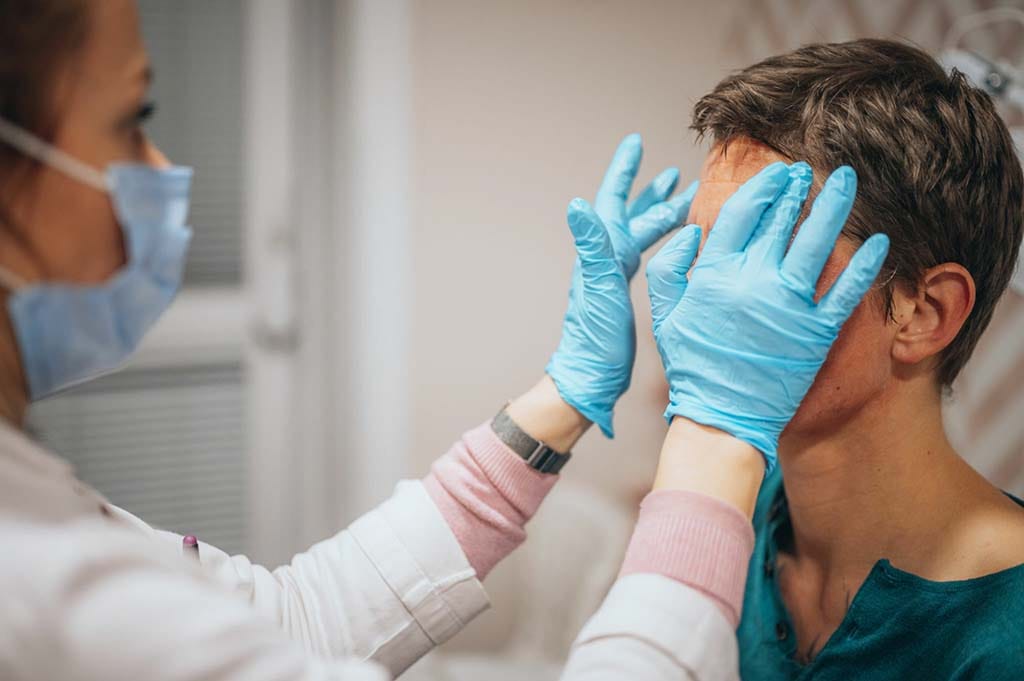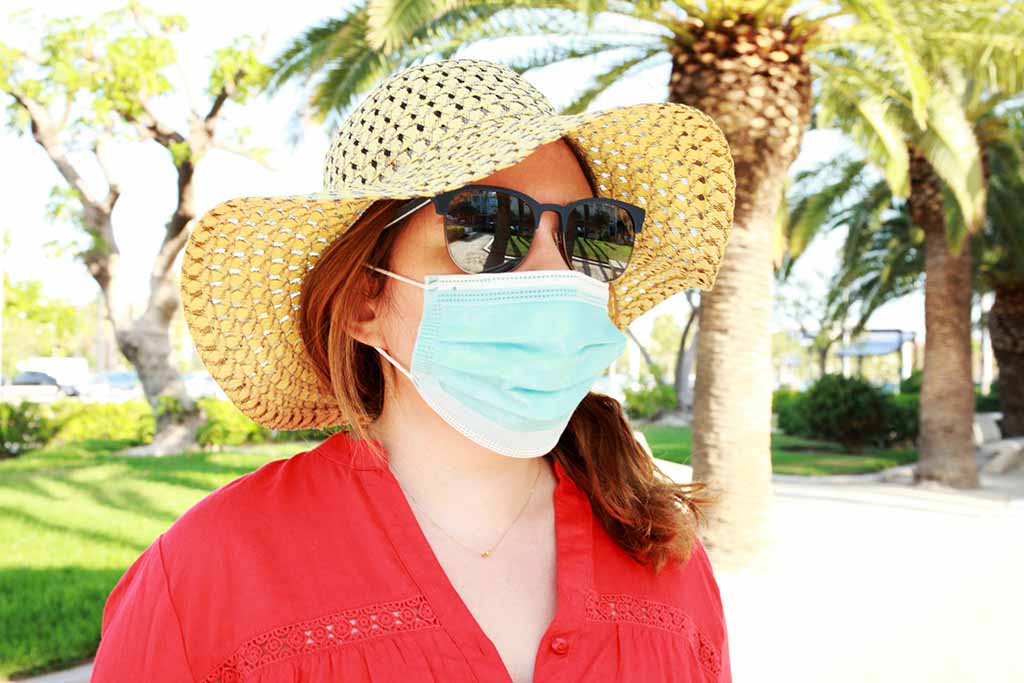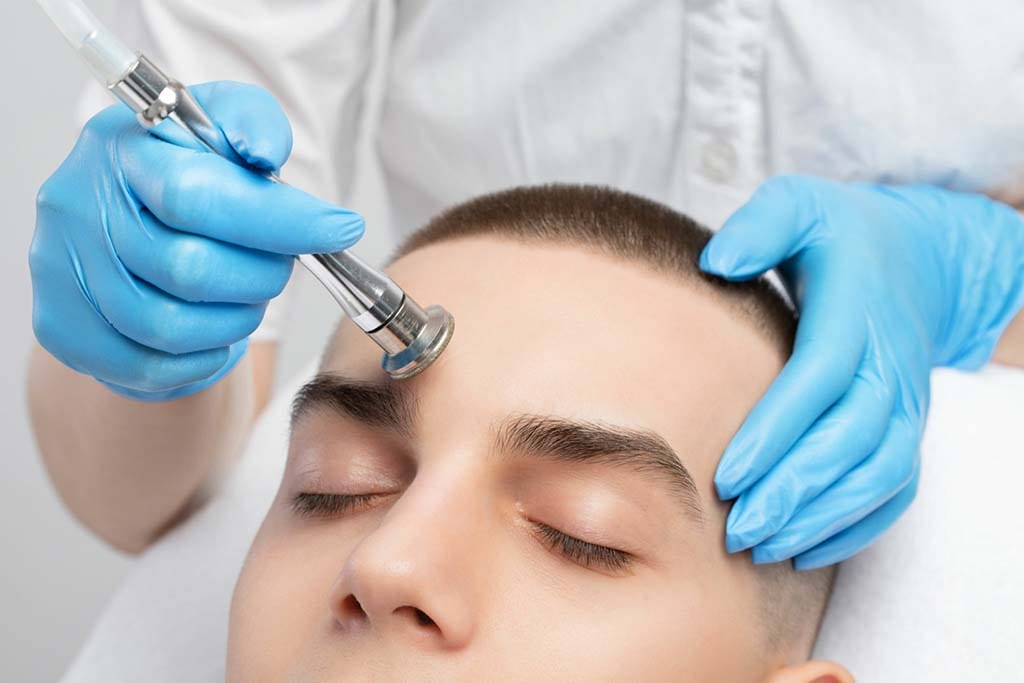This article is reviewed, corrected, and approved by: Dr. Joshua Collins M.D. | MRCP। FRCP
There are various choices to achieve smoother, more youthful skin. But dermabrasion is one of the tried and true methods that can make a huge difference.
We'll take you through the process of dermabrasion, from understanding what it is and how it works to what you can expect before, during, and after the procedure.
What is Dermabrasion?
Dermabrasion is a procedure that's been around for decades, and it's a great way to improve the appearance of your skin. Essentially, it's a controlled exfoliation method that removes the top layer of your skin. Helping to reduce imperfections like scars, fine lines, and sun damage. The result? Smoother, more youthful skin.
How Does Dermabrasion Work?
During the dermabrasion process, a dermatologist or plastic surgeon will use a specialized tool to remove the outer layer of your skin gently. This controlled exfoliation prompts your body to produce new, healthier skin cells, leading to a more even skin tone and texture.
What are the Benefits of Dermabrasion?


Dermabrasion offers a range of benefits. The effect is that it reduces the appearance of:
- Scars from acne
- Fine lines and wrinkles
- Damage from the sun (for example, sunburn)
- Uneven skin tone
- Tattoos (in some cases)
After this procedure, your skin may appear smoother, more radiant, and more youthful.
Risks and Side Effects of Dermabrasion
Like any medical procedure, dermabrasion does come with some risks and potential side effects. These may include temporary redness, swelling, and scabbing, but serious complications are rare. Your dermatologist or plastic surgeon will discuss these risks with you before the procedure.
Before Dermabrasion

Who is a Good Candidate for Dermabrasion?
Not everyone is a suitable candidate for dermabrasion. Typically, individuals with fair skin and lighter hair are the best candidates, as the procedure can sometimes result in changes in skin color. If you have mild or too much acne, skin infections, or a history of cold sores, you may need to delay the procedure.
What to Expect During the Consultation?
During your initial consultation, your medical professional will assess your skin and discuss your goals. They'll also provide you with a clear understanding of what to expect during and after the procedure. It's important to ask any questions you have and ensure that dermabrasion is the right choice for you.
How to Prepare for Dermabrasion?
Before your procedure, you'll need to follow specific instructions. It may be necessary to avoid certain medications to ensure safety.
Such as medications, creams, or other skincare products. To ensure the best results from your dermabrasion must talk with a dermatologist.
During Dermabrasion
You can get dermabrasion done without staying in the hospital. Also, the duration of the procedure varies depending on the area being treated.
Your medical professional will numb the area to minimize discomfort. Once the numbing takes effect, they'll use the dermabrasion tool to abrade the skin's surface gently.
Types of Dermabrasion
There are different types of dermabrasion, including traditional dermabrasion and microdermabrasion. Traditional dermabrasion is more invasive and suitable for more severe skin imperfections, while microdermabrasion is less aggressive and works well for milder issues.
The Recovery Process
Redness, swelling, and scabbing may occur after the procedure. Dermabrasion recovery time depends on how an individual's immune response. This is entirely normal and part of the skin's healing process.
Your doctor cares about your well-being and wants to make sure you have a smooth recovery. Physician can provide you personalized aftercare instructions that will help you get back on your feet fast.
After Dermabrasion

It's really important to make sure you follow the aftercare instructions given by your doctor after getting a dermabrasion. Paying close attention to these instructions is essential for your recovery. This may include using specific skincare products, protecting your skin from the sun, and avoiding certain activities that could irritate your skin during the healing process.
What to Expect During the Healing Process?
The healing process varies from person to person, but typically, you can expect your skin to recover within a few weeks fully. During this time, the fresh, new skin will gradually emerge, leaving you with a rejuvenated appearance.
How to Minimize the Risk of Complications
To minimize the risk of complications, follow your doctor's recommendations carefully. This may include keeping your skin moisturized and avoiding sun exposure. Staying vigilant during the healing process will help ensure the best results.
Tips for Getting the Best Results from Dermabrasion
If you want to get the best results from dermabrasion, be patient and take good care of your skin during the recovery process. Follow your doctor's advice, stay hydrated, and always try to maintain a healthy skincare routine to maximize the benefits of the procedure.
Conclusion: Is Dermabrasion Right for You?
Dermabrasion can be a fantastic solution for those looking to improve the appearance of their skin. If you're considering this procedure, it's better to talk with a qualified medical professional. With the right guidance and proper aftercare, you can enjoy smoother, more youthful skin and a boost in your self-confidence.
Frequently Asked Questions
Q: What are the differences between dermabrasion vs dermaplaning?
Ans: Dermabrasion and dermaplaning are skin resurfacing techniques. Dermabrasion is for severe skin issues, while dermaplaning improves the top skin layer. Dermabrasion is more painful and takes longer to recover, while dermaplaning has minimal downtime.
Q: Where can I find dermabrasion services near me?
Ans: You can search using Google Maps, and the online dermabrasion centers near you.
Q: What is hydra dermabrasion?
Ans: HydraDermabrasion exfoliates and rejuvenates the skin. It combines microdermabrasion with hydrating serums and vacuum suction to remove impurities, stimulate blood flow, and cleanse pores. It works for different skin types and concerns and is done by trained professionals.
Q: Can dermabrasion remove scars?
Ans: Dermabrasion can improve certain scars by removing top skin layers, leading to smoother skin.
Q: How much does the cost of dermabrasion?
Ans: Generally, dermabrasion cost $1000 to $3000 in the US.
Q: Are dermabrasion permanent?
Ans: No. This procedure is not a permanent solution. It may last around one month.


